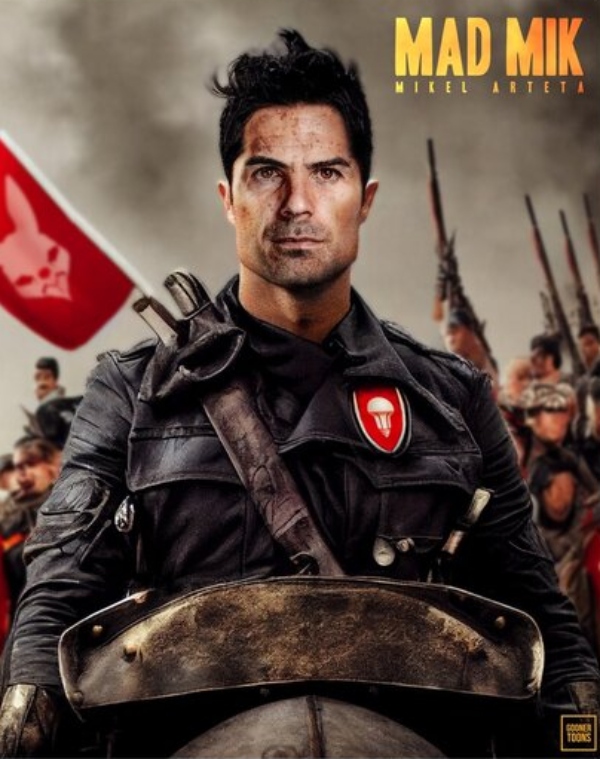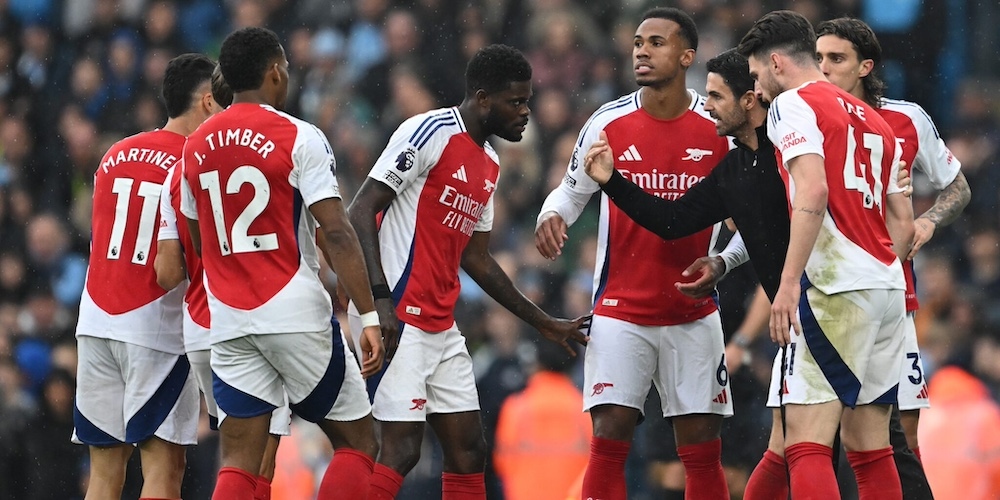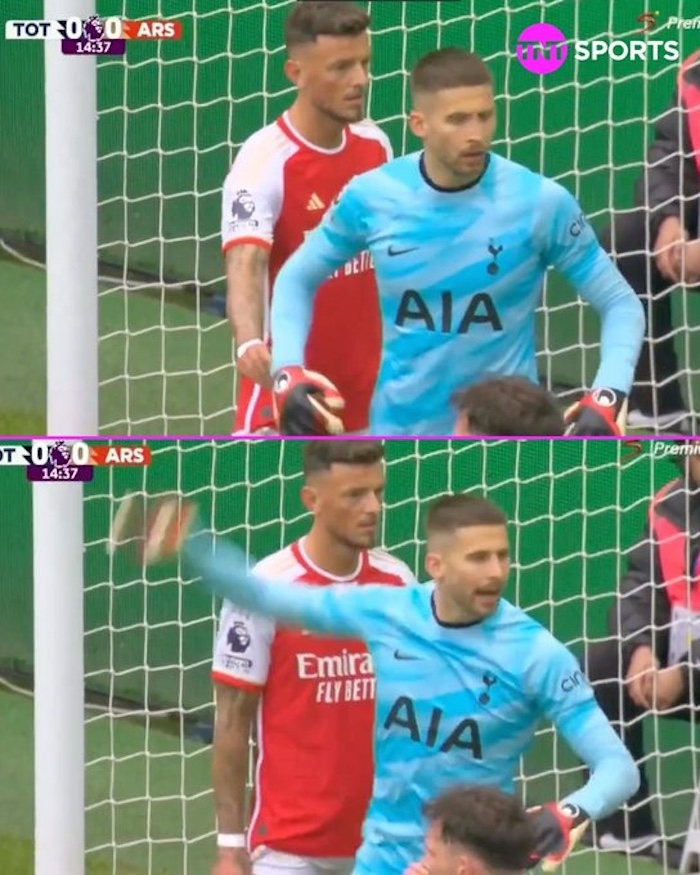Under Mikel Arteta, Arsenal has shown a tactical evolution.
While this includes a disciplined approach both offensively and defensively, discussions around Arsenal's 'dark arts' in games against teams like Manchester City and Tottenham suggest a greater willingness to engage in tactical fouls or time-wasting, which are within the rules but often criticized for not being in the spirit of fair play.
Until Liverpool, Villa, Tottenham, Newcastle, ManU or Chelsea get it together, Premier League fans who’d like to see another English champion will have to hope that Arsenal, once again chase Manchester City to the end—that’s four-in-a-row champion City, the nation state-owned club who will soon be defending themselves against 115 charges from the Premier League of wrongdoing.
PL bridesmaids the last two seasons, the Gunners had an early season chance to challenge City’s almost total recent dominance when they almost shocked the Mancunians, leading the champions until the death, allowing a late goal for a 2-2 draw. From one perspective, it was a superbly organized and courageous performance that bodes well for a possible change in fortunes at the top.

Mikel Arteta Rejects Talk of “Dark Arts”
But from another view, it was a performance underscored with a high degree of gamesmanship, including: for the second week in a row, Gabriel (Magalhães) scored a thumping goal with a header from a corner while the opponent’s goalie was being blocked out; and, a lot of time-wasting as a succession of Arsenal players went to ground and called for treatment during the second half as they tried to preserve a 2-1 lead with 10 men.
Opponents chimed in. Asked about Arsenal’s apparent and tactical use of the dark arts, City defender John Stones said: “I don’t know if they have mastered it, they’ve done it for a few years, and we know to expect that. You can call it clever, or dirty, whichever way you want to put it, but they break up the game which upsets the rhythm. They use it to their advantage…” Bernardo Silva suggested, “The second goal is already their usual block to our keeper allowed by the referee. And then the referee allowed a sequence of time-wasting events.” And, City captain Kyle Walker added, “I think it’s part and parcel of the game and we’ll say the dark arts. I think as a Manchester City fan or player, you are obviously frustrated. As an Arsenal manager, he is going to say well played and well managed.”
Indeed, Mikel Arteta begged innocence, preferring to talk about how well Arsenal defended, and the diligence with which they dropped into their 5-4-0 shape, occasionally a 6-3-0, just outside their own box. Arteta rejected the accusation from City that Arsenal employed “dark arts,” calling the result of 10 vs 11, a “miracle” performance and result.
But the pundits sided with the City players with columnist Jonathan Wilson titling his story—"Arteta turns to his inner Mourinho but Arsenal fall short again.”
Gamesmanship has been in the game of football for decades. But using it a tactical option is a relatively new development, like inverted fullbacks or a false 9. But, late last season, retired footballer/now pundit Graeme Souness noted a “pattern of offending” by Arteta’s team.

For example, back in May, Souness insisted that two of the Gunners’ goals in their 3-2 victory over Spurs “should not have counted” because there were incidents of obstruction: “I’ve heard a lot of talk about the ‘genius’ of Arsenal’s so-called set-piece ‘guru’ (Nicolas Jover) and the incredible work he’s played in the team’s push for the title. Well, forgive me for bursting the bubble here, but amid all the excitement about the goals Tottenham conceded from corners last week, something very significant was somehow missed. Two of those goals should not have counted. We are witnessing a stealthy, very deliberate, strategy from Arsenal—and Ben White in particular—to obstruct goalkeepers in a way which will avoid detection by the referees.”
The Football Association’s Own Rule Book
Souness offered even more logical insight: “Might I suggest the referees consult their own little FA rule books for a definition of that term? Law 12 states, in black and white, that obstruction is ‘moving into the opponent’s path to obstruct, block, slow down or force a change of direction when the ball is not within playing distance of either player.’ Set-piece genius? Call me old-fashioned but what we’re seeing here is cheating. This blocking by players from set-pieces is more prevalent than ever before, which presents a challenge for referees. But Arsenal do this every game, so the penny should have dropped long ago. Arsenal have been using this pattern of offending ever since the set-piece coach, Nicolas Jover, joined Mikel Arteta at Arsenal.”

In that same London derby last season, Arsenal defender Ben White was also spotted trying to loosen goalie Vicario’s gloves on a corner. And the New York Times wrote an article (“Ben White, Arsenal’s master of football’s dark arts”), reporting: “Ben White is Arsenal’s covert (until recently, at least) agent of the dark arts. He uses these preconceptions and stereotypes as the cloak to wield the mischievous persona that lurks beneath: the old-school wind-up merchant, also known in the modern era as master s***house.”
So, what is really going on? Is this just modern wind-up merchants at work? Are win-at-all-costs managers like Arteta getting away with “murder” because authorities are too weak to act? Or, is it something deeper—that players and their managers have too much power?
As for overall gamesmanship, TalkSport’s Simon Jordan asks, “I think there’s a determined exercise, where players and managers think that they run the game rather than work within the confines of it…The players have to understand their responsibilities, stop what they’re doing, and realize they’re in the entertainment business, and that the people watching are equally as important as them. We’ve got to decide what we want…”
What do you think, readers?
 City won't get punished and Everton will be deducted another 10 points
City won't get punished and Everton will be deducted another 10 points 






Leave your comments
Post comment as a guest